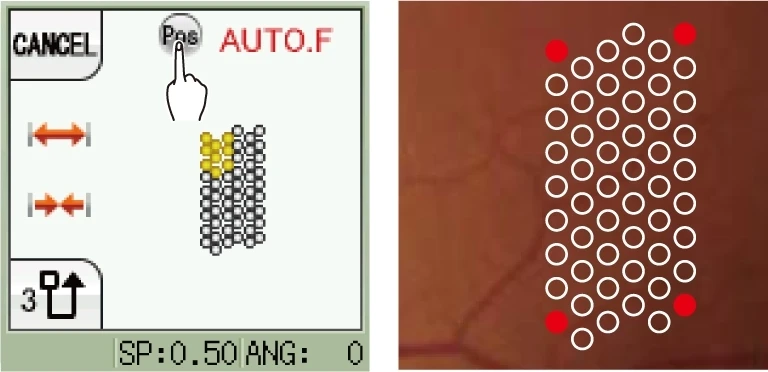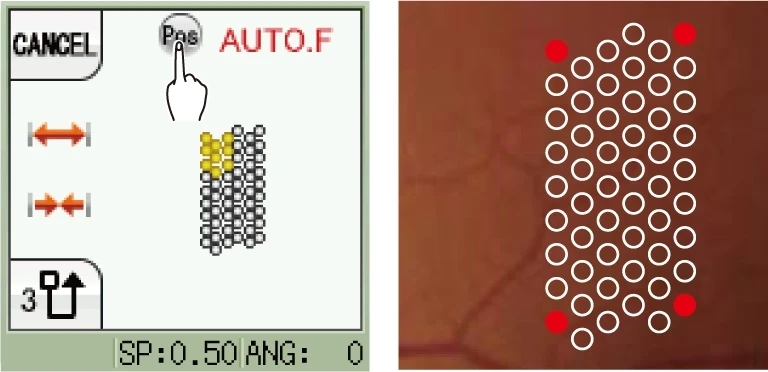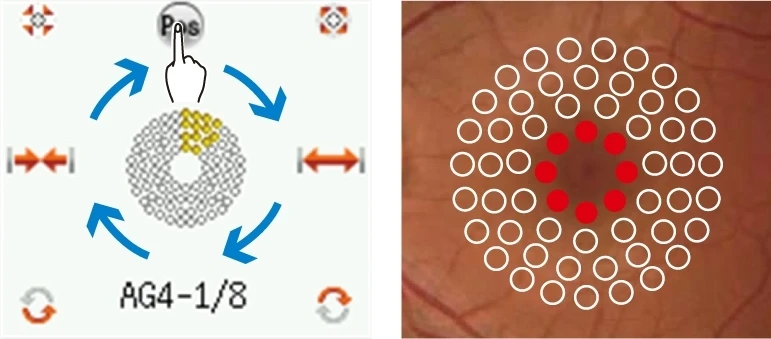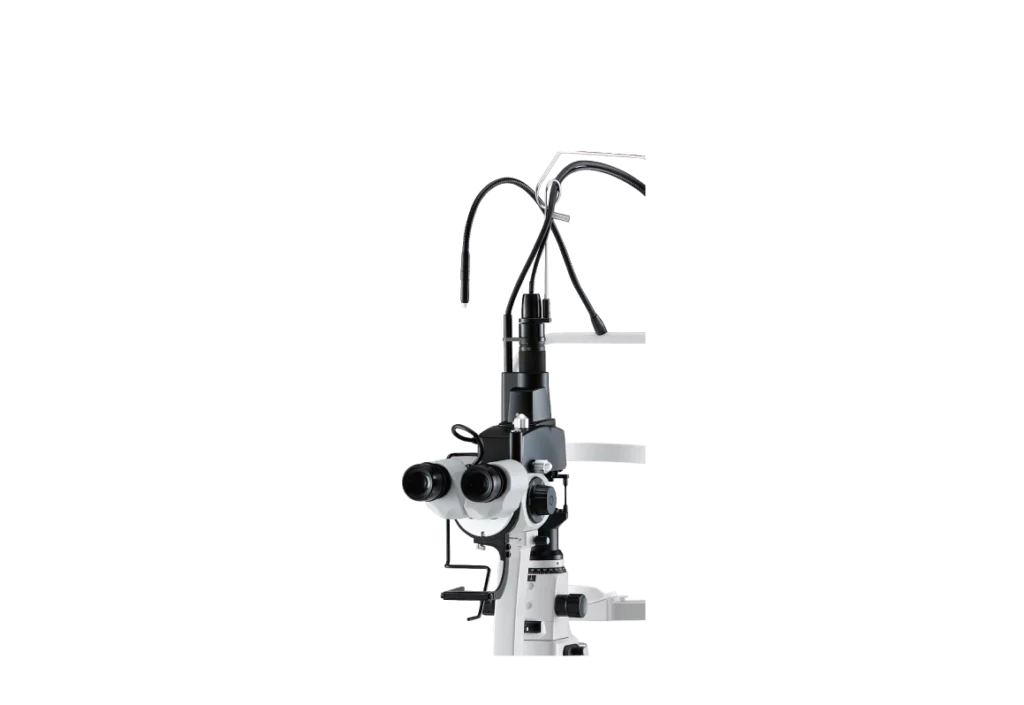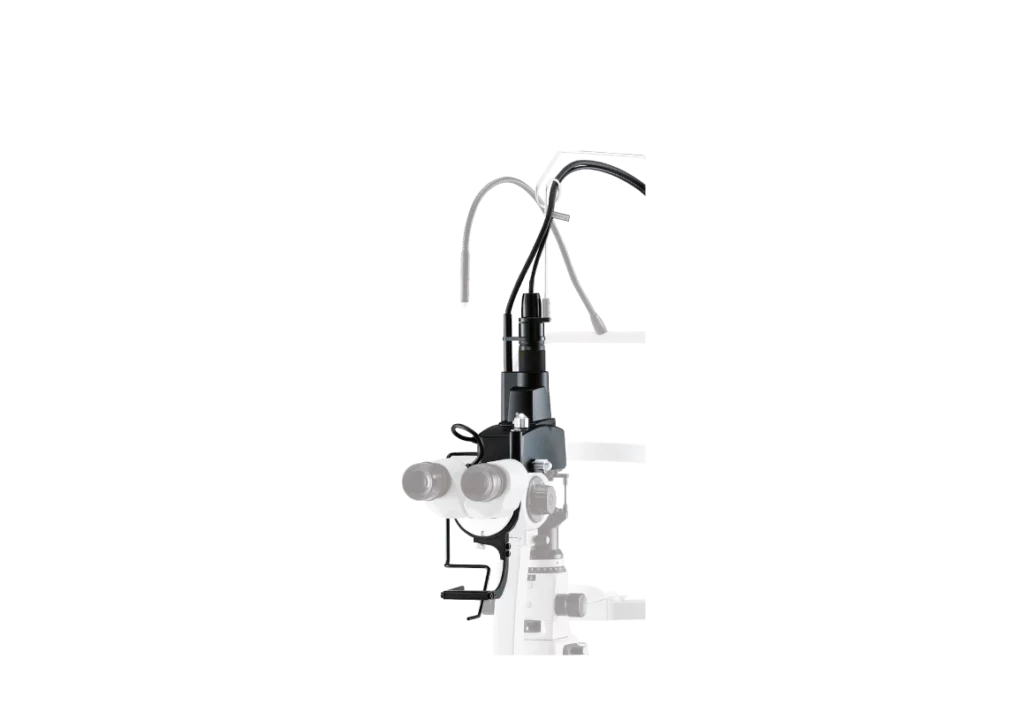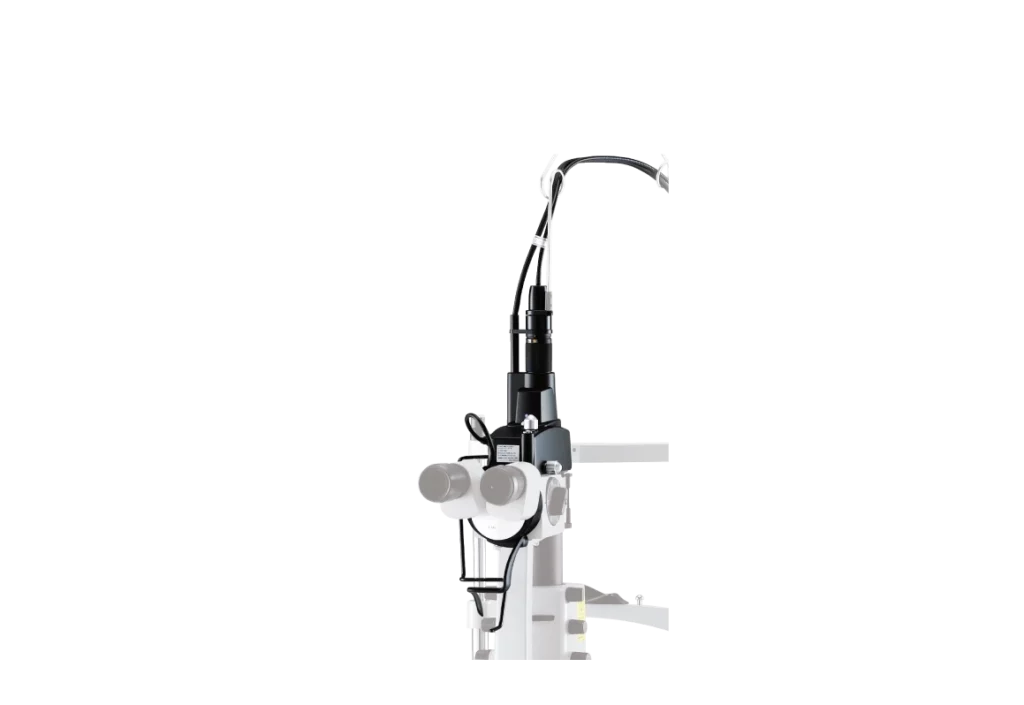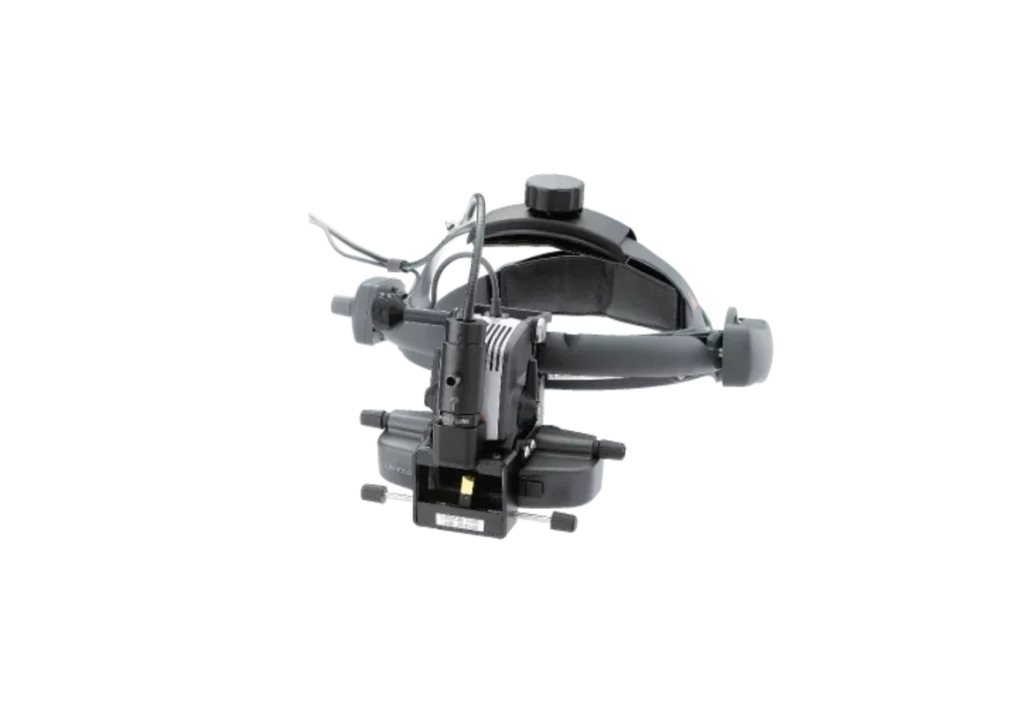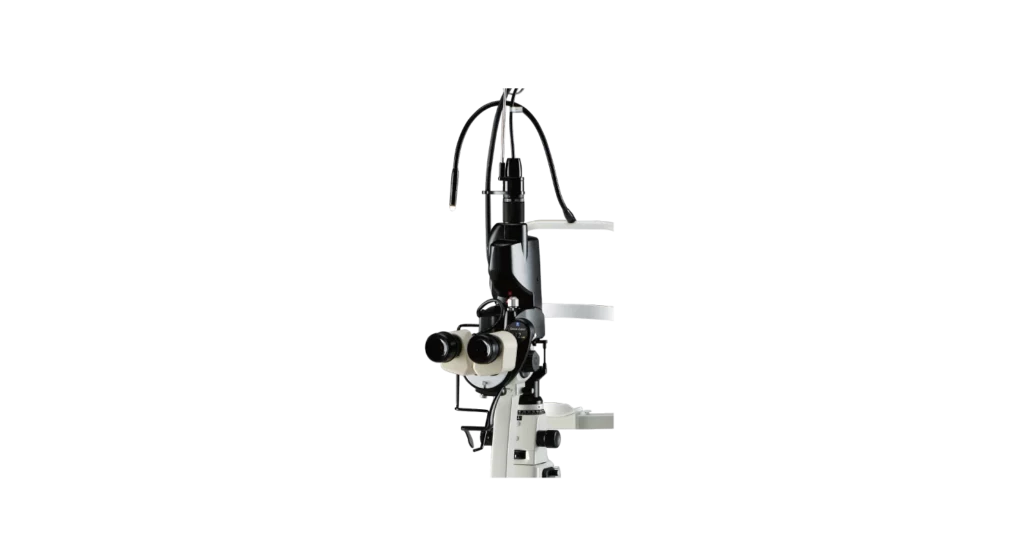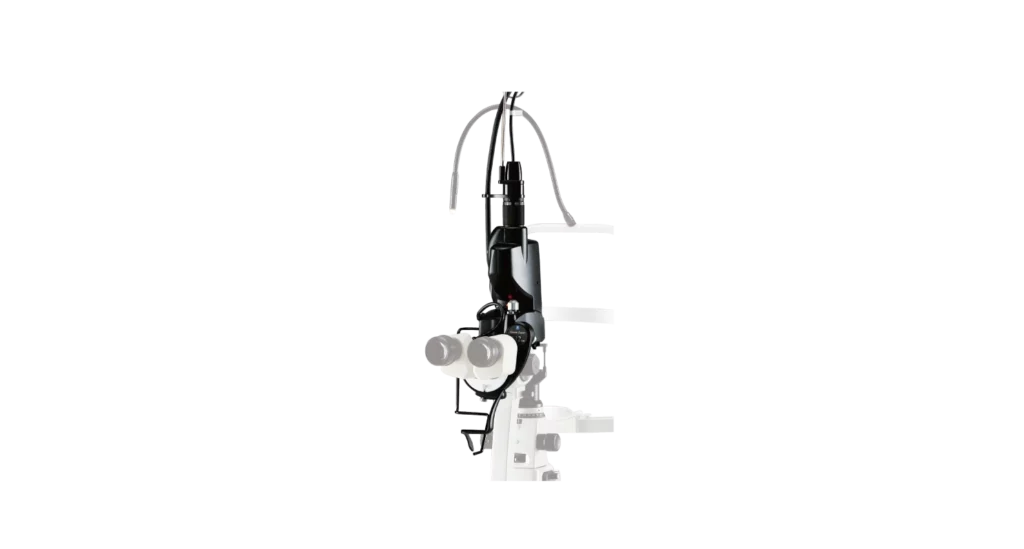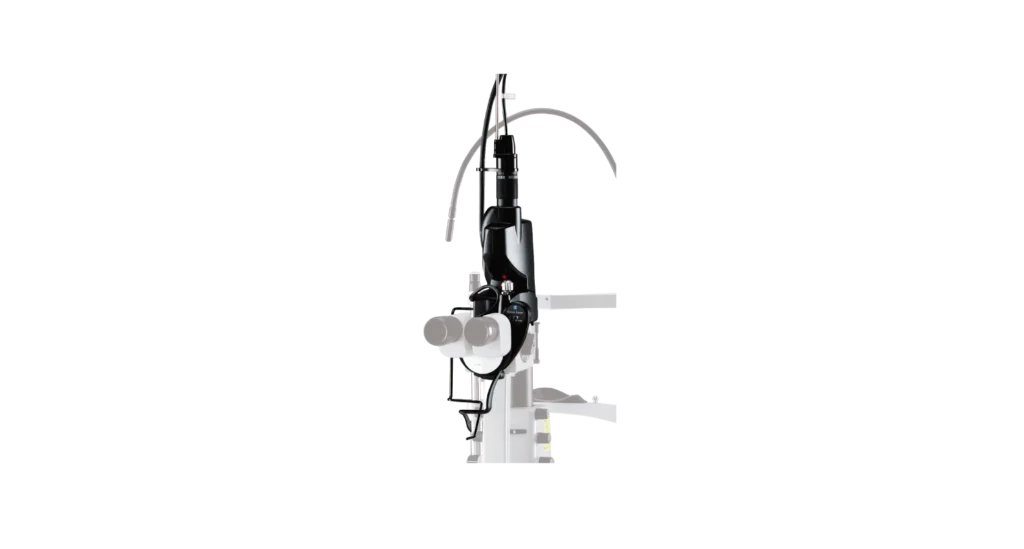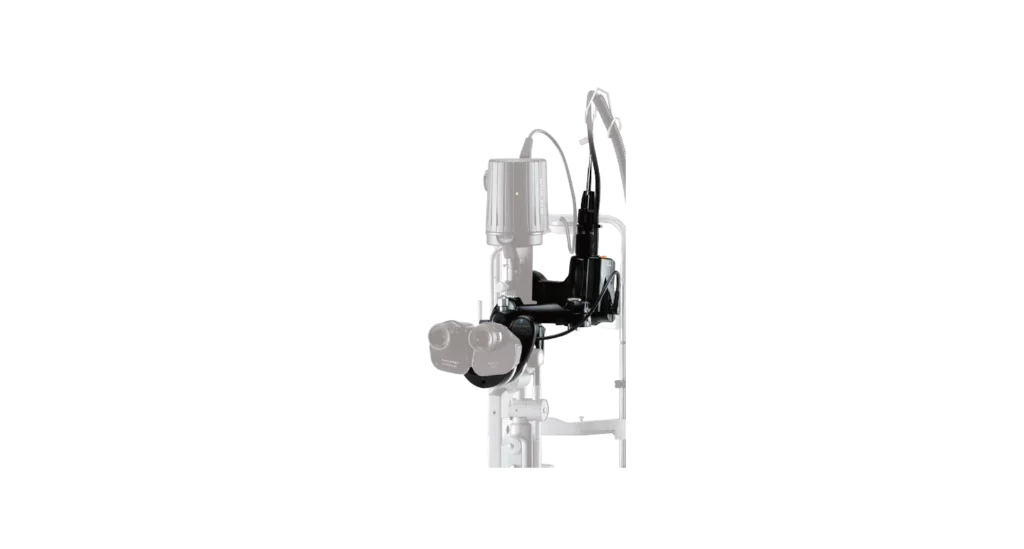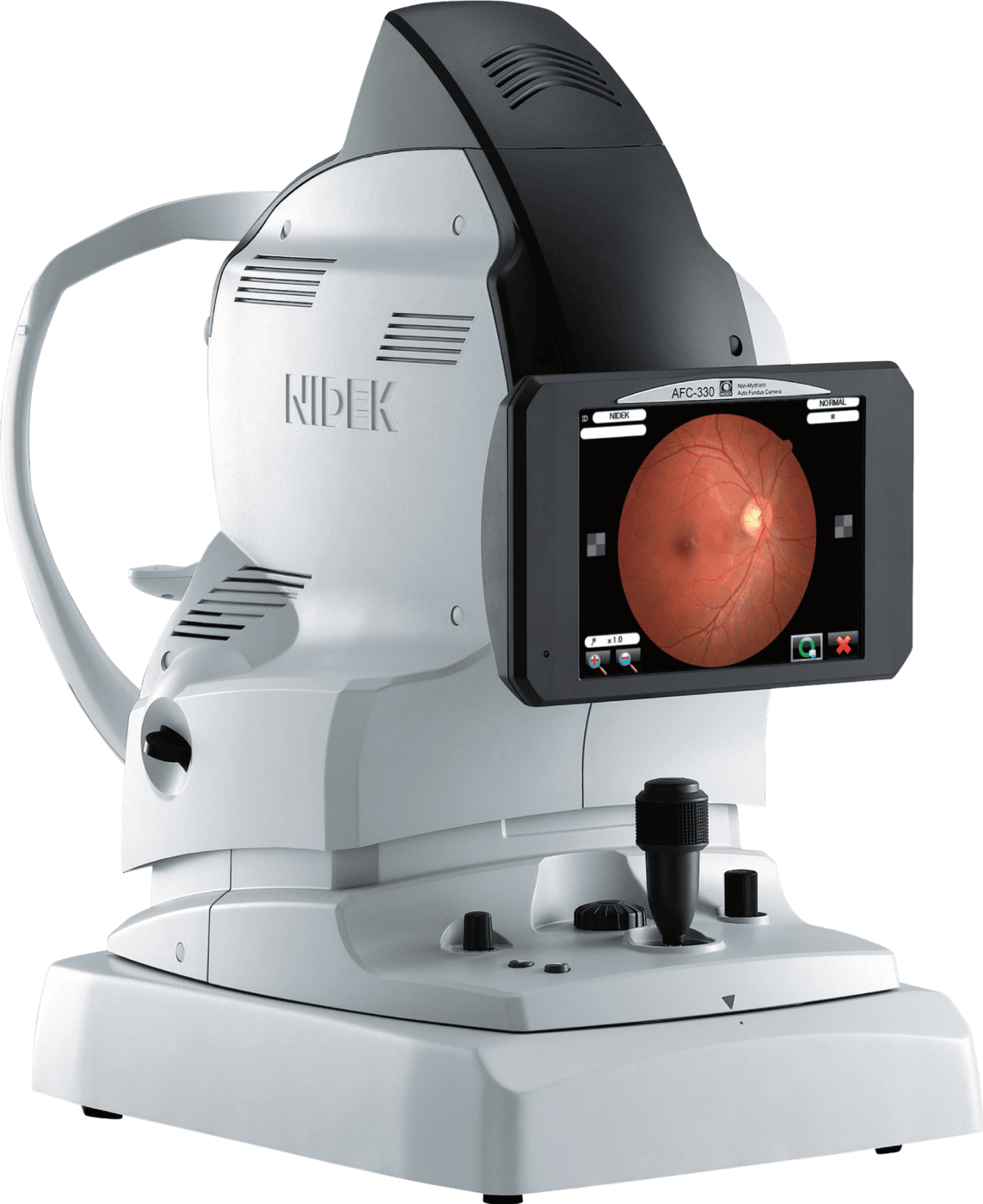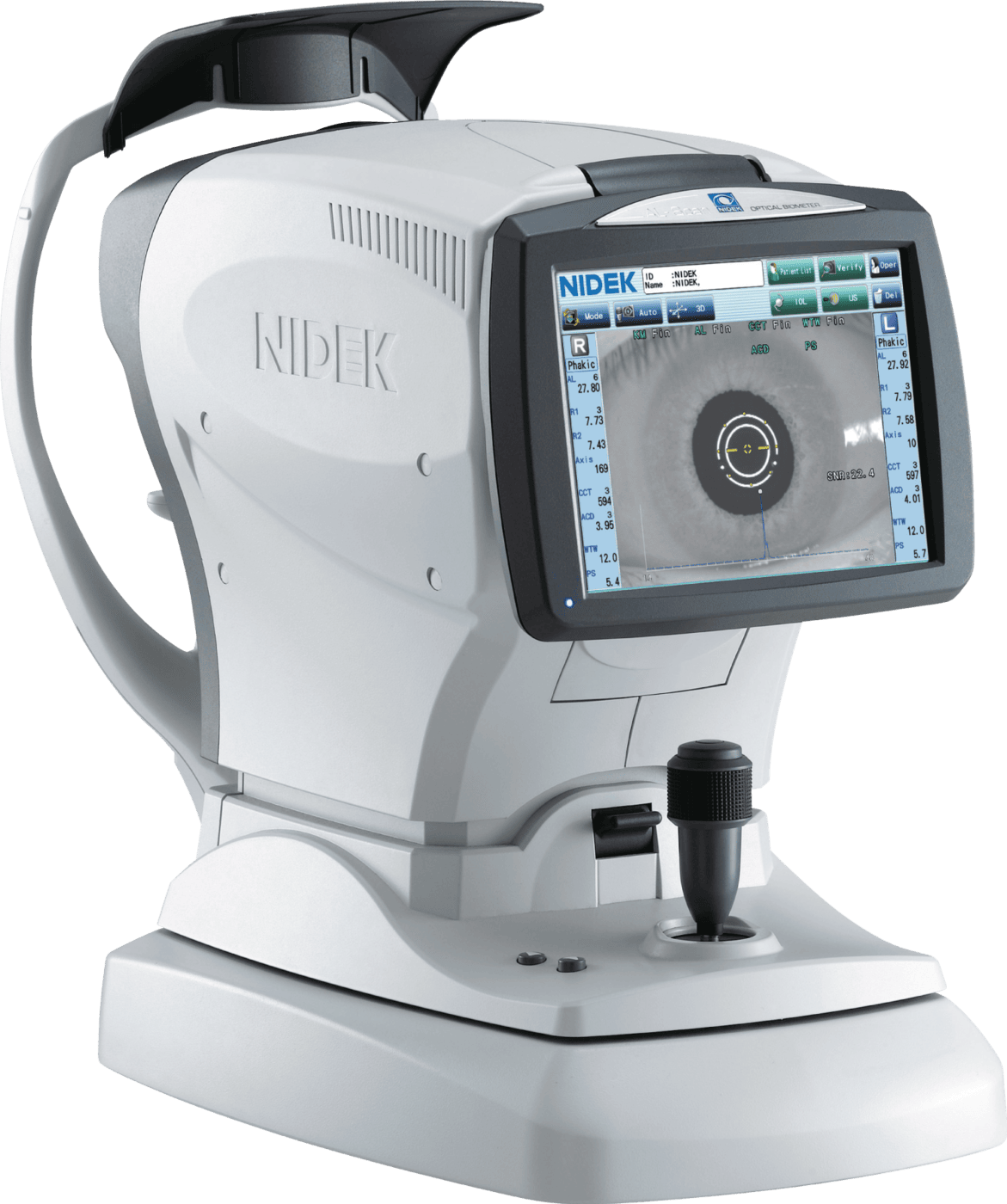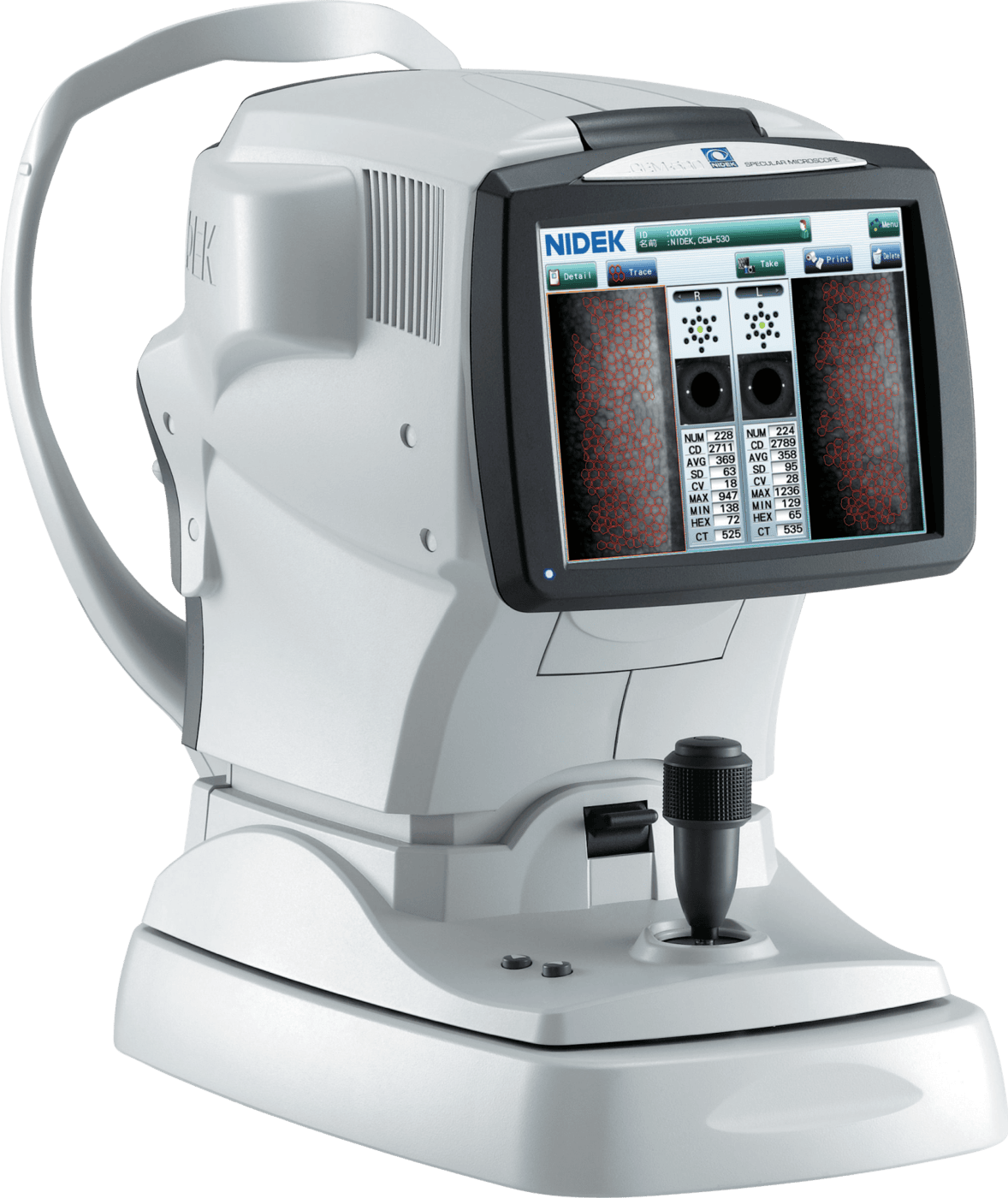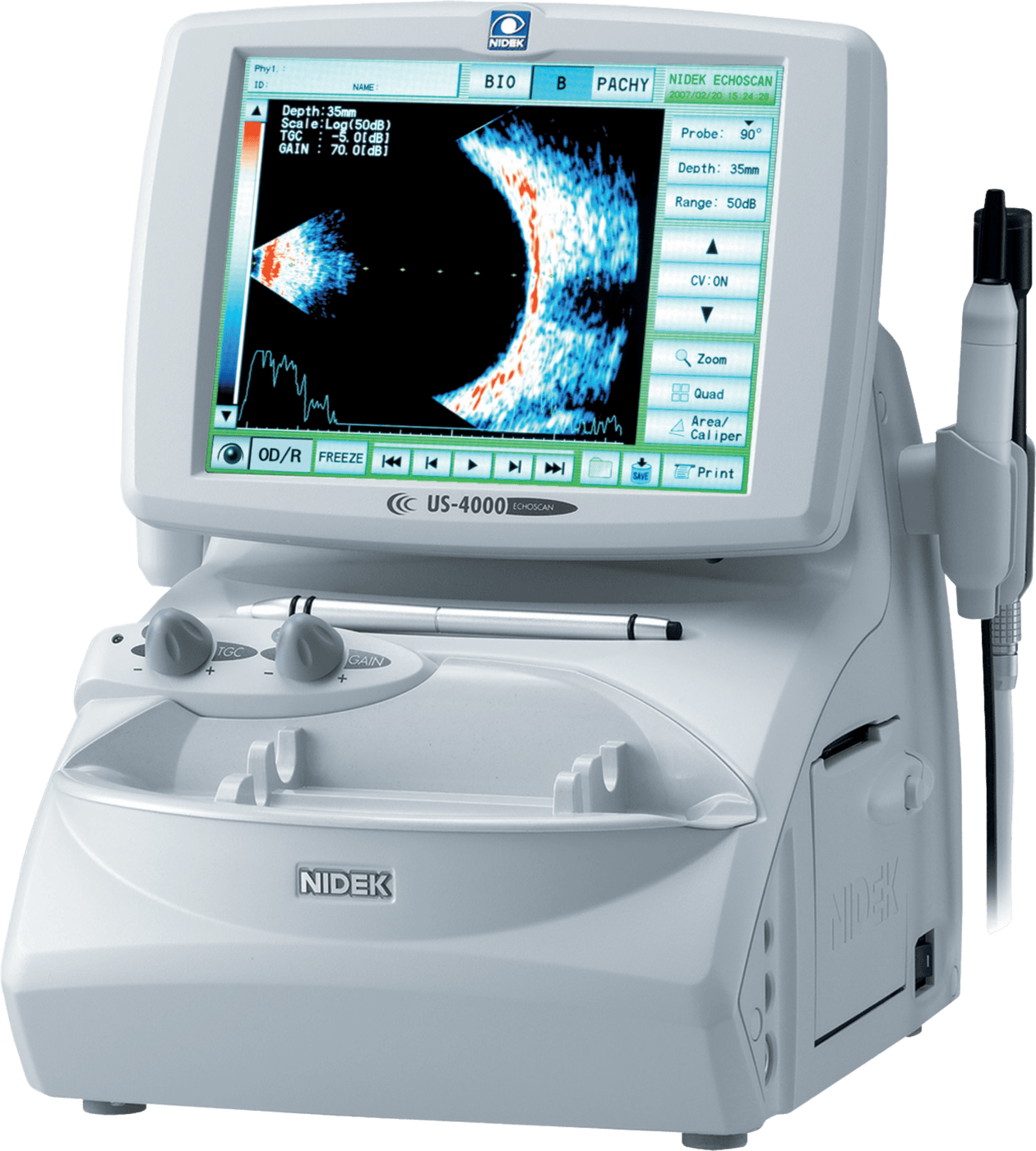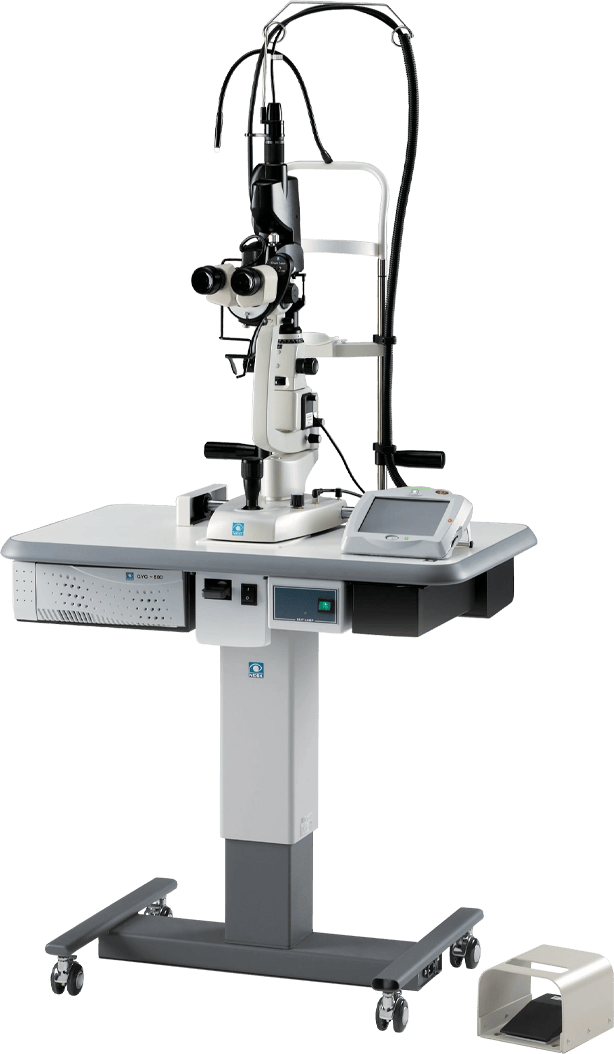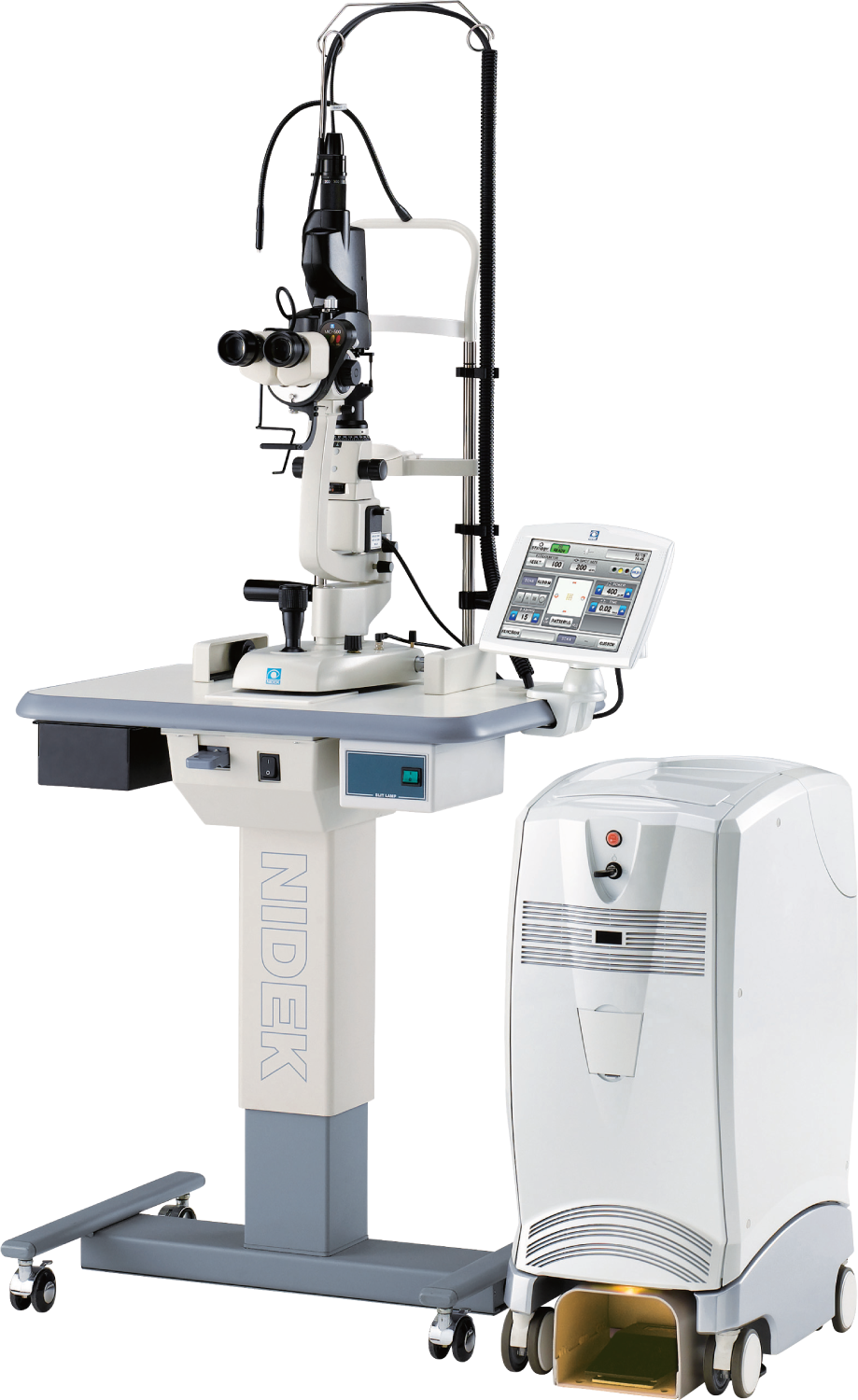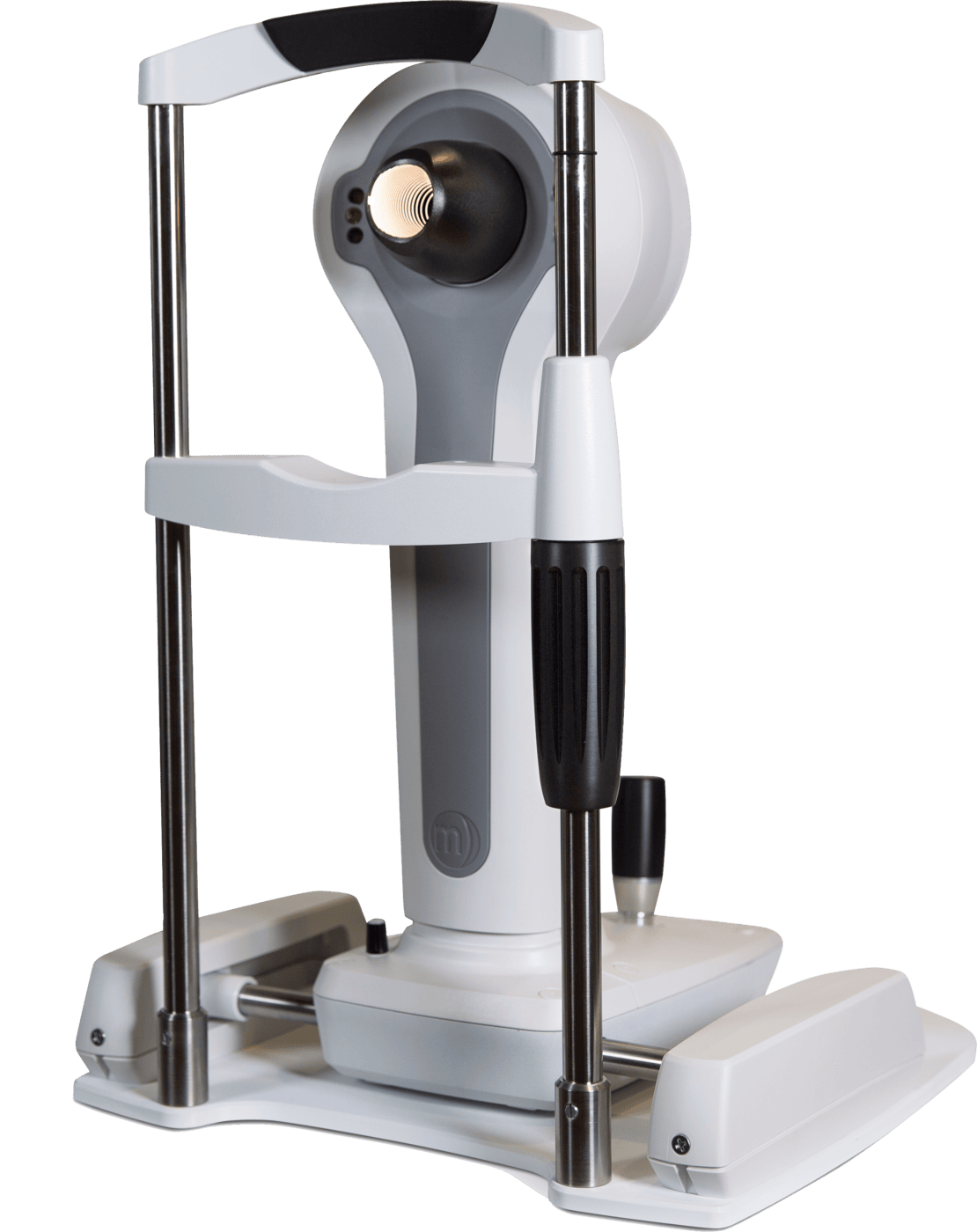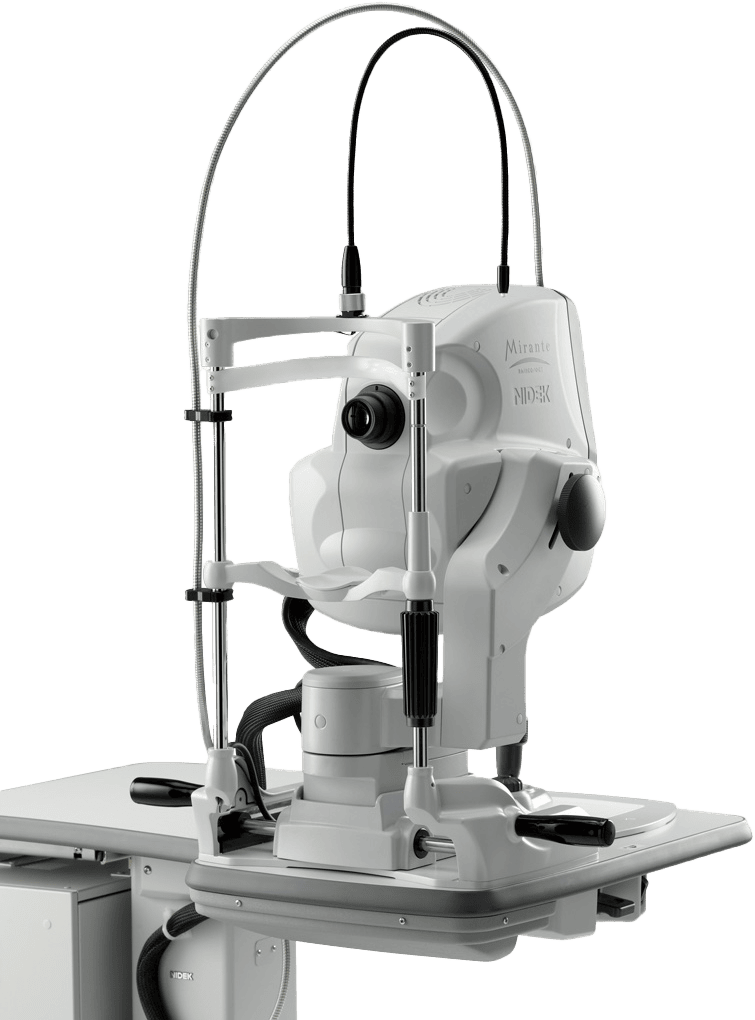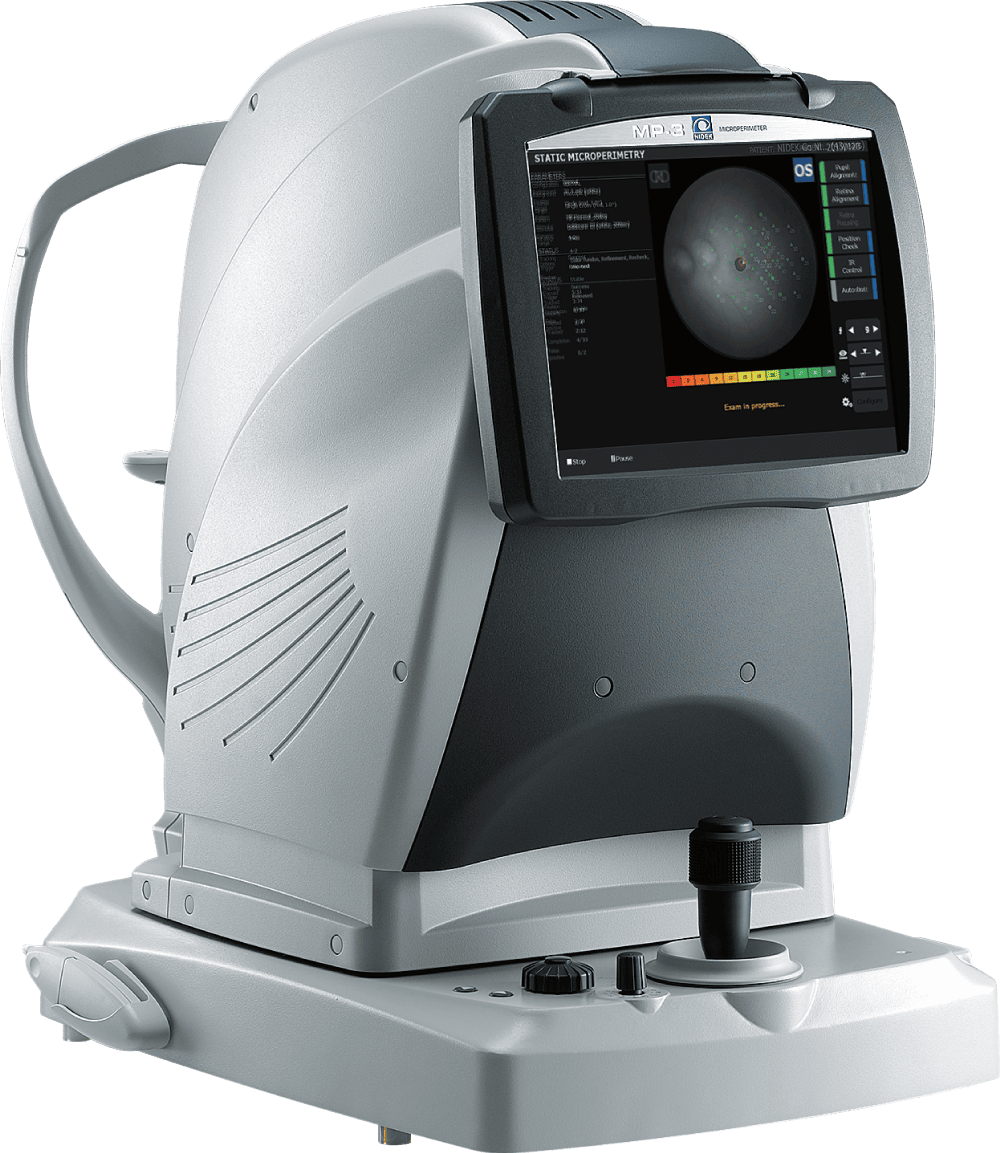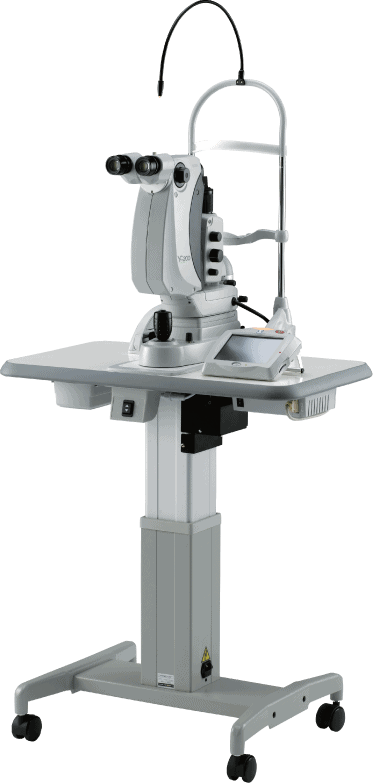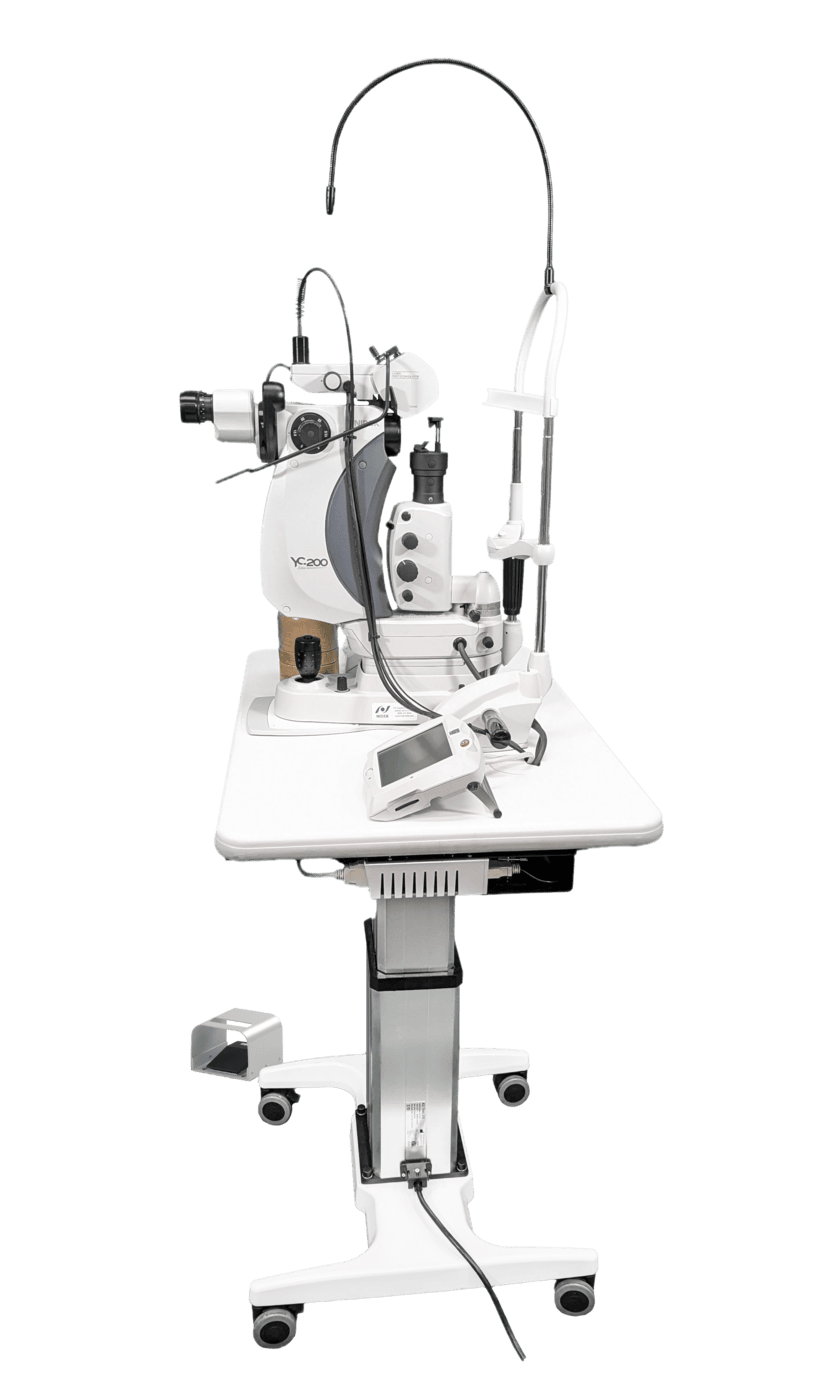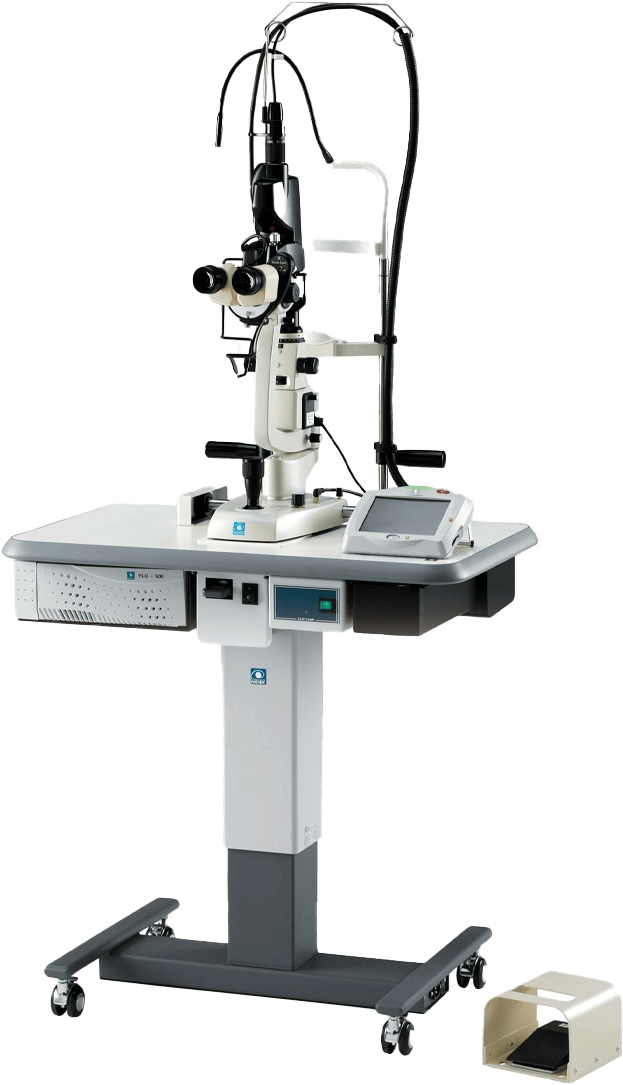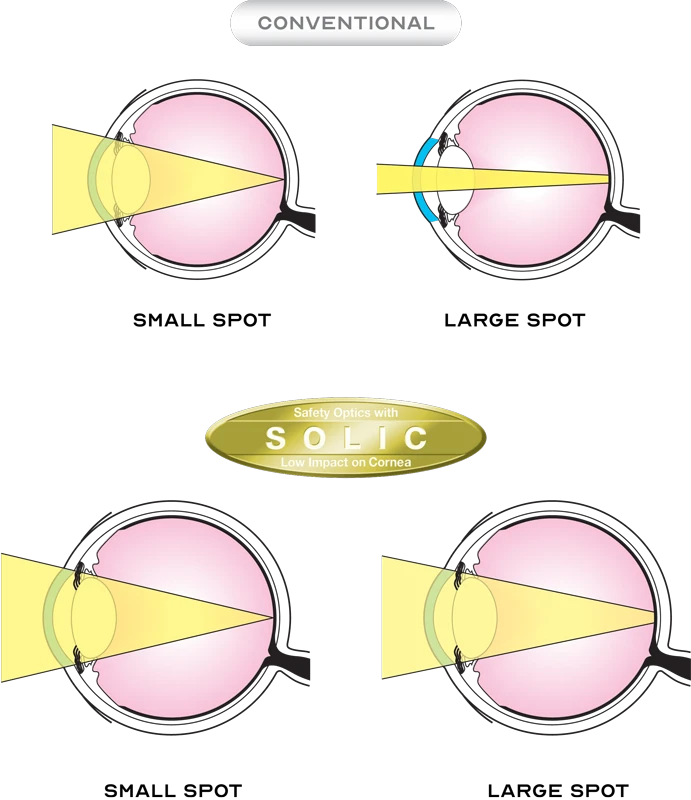
Safety Optics with Low Impact on Cornea
All delivery units incorporate the SOLIC optical design that ensures low energy density on the cornea and lens even for large spot sizes.
Now available with all nidek photocoagulators
Reduce Patient Chair Time with YLC-500 Vixi
Scan delivery units with Vixi enhance treatment by its ability to treat varying retinal pathologies with 22 preprogrammed scan patterns.
Once photocoagulation is completed in one region, the auto forward function automatically positions the scan pattern to the next region of treatment, allowing the surgeon to concentrate better on adjusting focus.
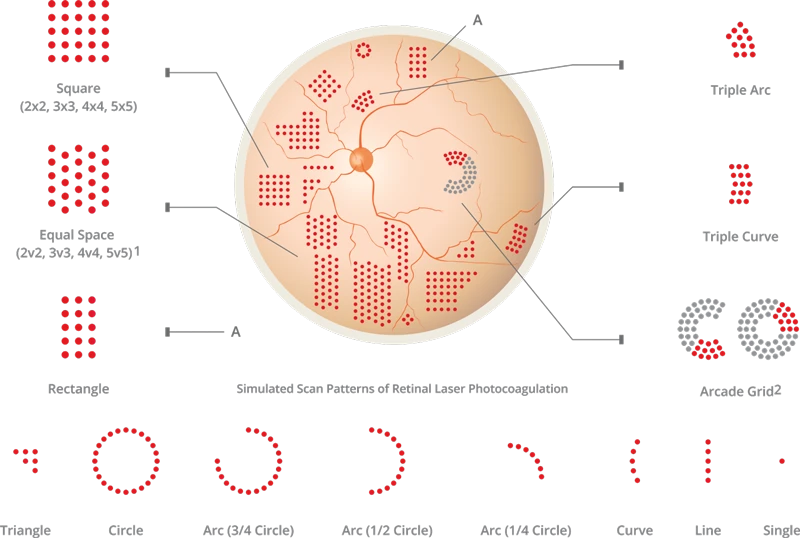

01
Spacing Function
2v2, 3v3, 4v4, 5v5 – Equal spaces between spots in all direction.
02
Auto Forward³
Automated positioning of the scan pattern for photocoagulation.
03
Repeat Mode
Regions undergo photocoagulation continuously on a pre-programmed path.
Low Power Mode (LPM)
LPM (Low Power Mode) is a form of laser photocoagulation that delivers reduced power to the retina for a therapeutic effect. With LPM, you can treat conditions easily.
Wide Range of Delivery Unit Options
In addition to conventional single delivery units, the scan delivery units are added to the wide range of yellow laser delivery systems. Both the scan and single delivery units include attachable models³ for the NIDEK SL-1800, ZEISS SL130, and HAAG BQ900, which provide the existing slit lamps with a new stage for scan and single laser treatment.
YLC-500 &
YLC-500 VIXI
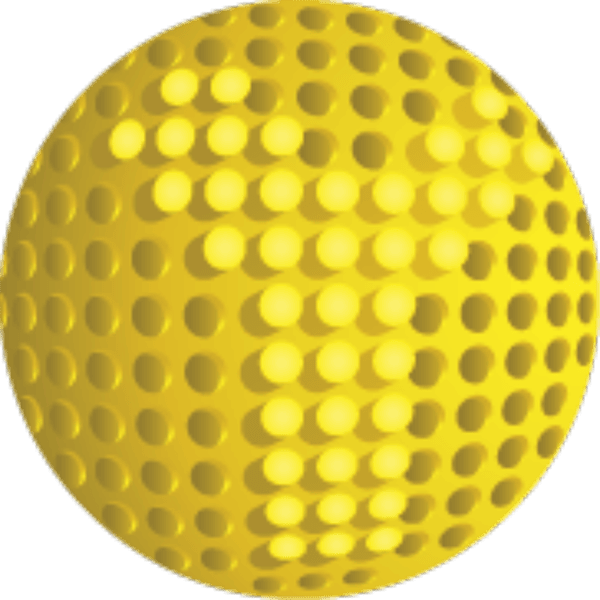
Experience powerful yellow laser technology and get access to premium support and resources.
Get in touch with a sales professional.
¹ For equal space patterns, No. v No. indicates the number of spots in horizontal and vertical directions.
² The arcade grid pattern is used for treatment of the periphery of macula in one-sixth units. The inner diameter is fixed and spot sizes range from 100 to 200 μm.
³ The auto forward function is available for the equal space (2v2, 3v3, 4v4) and the square (2×2, 3×3, 4×4) patterns. The number of times auto-forwarding can occur differs depending on the scan pattern, spot size, and spacing.
⁴ Prior confirmation of attachment to an existing slit lamp model is required.
